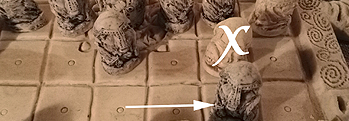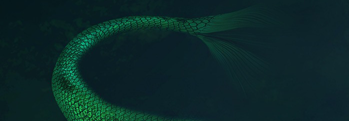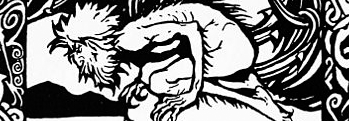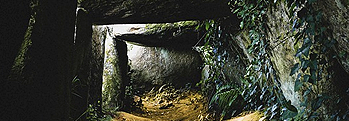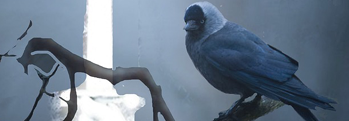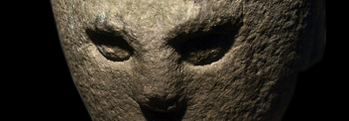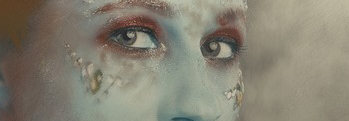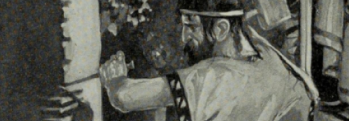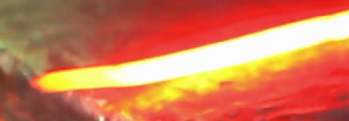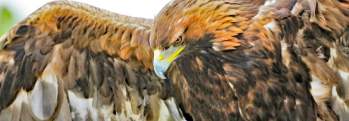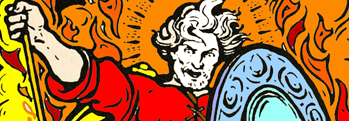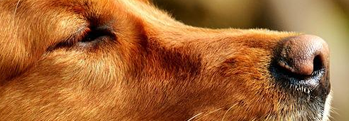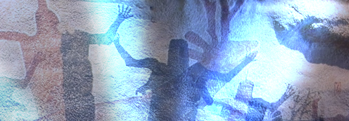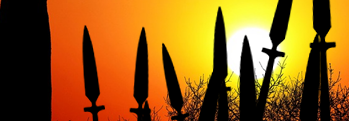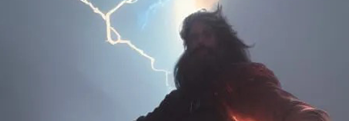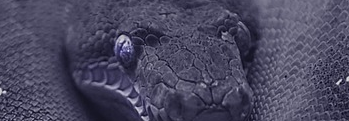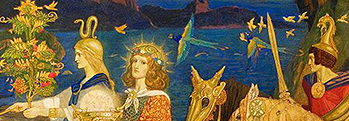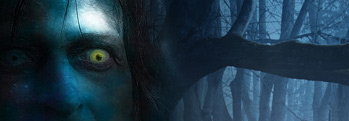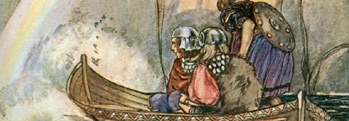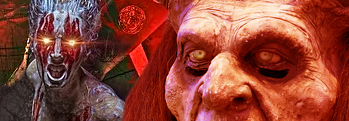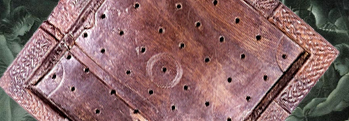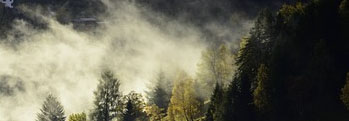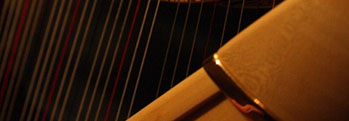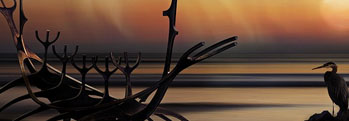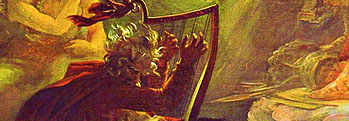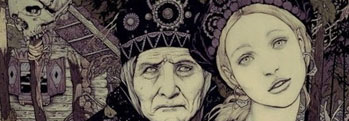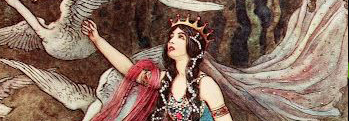The Morrigan
Irish and Celtic myths and legends, Irish folklore and Irish fairy tales from the Mythological Cycle
Dreaded three-formed witches of war, The Morrigan
The raven has long been an omen of ill-tidings around the world, bearer of bad news and warnings, but in Ireland it was known once as a servant of the fairy Morrigan, or the raven was herself in person! She it was whose name meant the Great or Ghost Queen, from the old words for fear and greatness.
Some will tell you earnestly that she was a goddess, and that she had three forms, those of the maiden, mother and crone, yet others will say Morrigan was but a title like priestess. Christian chronicles record it to mean a monster in the form of a woman, there are those scholars who say she was one and the same as the banshee, and that Samhain itself was dedicated to her.
 Ériu grand daughter of Nuada, wife of the last Tuatha High King, who gave her very name to Ireland, was claimed to have been among her followers as she was head of the Badb, the battle spirits.
Ériu grand daughter of Nuada, wife of the last Tuatha High King, who gave her very name to Ireland, was claimed to have been among her followers as she was head of the Badb, the battle spirits.
Whatever the truth, we first hear of the Morrigan fighting alongside the warriors of the Tuatha De Danann in their struggles with the Fir Bolg and then the Fomors who came from afar to conquer and enslave. In her raven-coat she'd soar above bloody battlefields, which she called her garden, her cry emboldening those she favoured into battle fury, riastradh, and putting terror on those she opposed.
Before the second battle of Moy Tura where fell Balor of the Evil Eye, Dagda Mór held a tryst with Morrigan by the waters of the river Unius in Connachta, bearing her to Gleann Etin, and so impressed was she with his various endowments and endurance that she promised to bring all the druids of Ireland to the aid of the Tuatha in the coming battle.
Then she bound up the loins of the Fomors so they couldn't relieve themselves and hid the waters of Ireland from them, and when she came at last to the battle itself, prince Nuada asked her what she could do to help. In answer she spiralled up into the air and rained down fire and blood through a strange and poisoned fog, breaking the Fomor hosts of King Indech with a chant so powerful that they ran into the ocean!
“There arose a wild, impetuous, precitpitate, mad, inexorable, furious, dark, lacerating, merciless, combative, contentious badb, which was shrieking and fluttering over their heads. And there arose also the satyrs, and sprites, and the maniacs of the valleys, and the witches, and goblins, and owls, and destroying demons of the air and firmament, and the demoniac phantom host; and they were inciting and sustaining valour and battle with them.
Over his head is shrieking, a lean hag, quickly hopping, over the points of their weapons and shields, she is the gray-haired Morrigu.”
After it was done she took two handfuls of that King's blood to the hosts that were waiting at the Ford of Unius, so "Ford of Destruction" became its name. When the battle spoils were divided and the bodies given to the earth or the sky, the Tuatha and the fairy hosts and the mountains and rivers of Ireland asked the Morrigan had she any tales to tell, so she spoke this prophecy:
Under the gentle sky lies the earth.
Restful at last in the arms of heaven.
As sweet wine or a fine meal is the land, for all to eat and drink, beneath the stars.
Before me I see this wonderful land.
Like a splendid mead, rich and worthy of savouring
Keeping fresh summer's blessings even in stark winter
Giving us shelter like a shield makes strong a spear
And as a fist holding the shield our strong places, hungry for battle.
None can break these spear-bristled walls
Here we harvest and here we stand
And here will nine times the grandchildren of our children grow fair and bold
And the fields will be like forests
With fences surrounding
and horns calling the beasts of the field
The sun shining not beneath soft leaves
Rich with sap so they bend with the weight
So much will this land bring that
every pauper will be as a king
and every boy a warrior of renown
every dog a fierce champion
Straight and tall will grow the trees, so that each shall fruit a spear
The fires shall bring warmth and melt the metal
Strong will be the foundations
and rich will be the milk
Every cow shall be full with calf
Birds singing like clouds above
The beasts of the wild shall leap for joy in spring
and on Samhain the ripe harvest.
Many and many will be the people of this land, filling it from peak to ocean
Fair and fruitful
As the water runs over the sharp rocks so shall time, through shadow and fear
But this will be the tale of the land and its people
Ours will be the peace of Heaven beneath the skies.
For all of eternity.
She wasn't always on the side of the children of the Tuatha either, when she and Cú Chulainn met he didn't see the truth of her and gave her foul insult before leaping to the attack. Just in time she changed into a raven and sat on a branch close by, mocking him with her croaks, and then he discerned her true nature, so he gave his grudging apology, but she said to him, “it is at the guarding of thy death that I am; and I shall be.”
Relations between the two soured after that, and when Queen Medb brought war with her to claim the famed brown bull of Cuailgne, Cú Chulainn spurned the embrace of the Morrigan and her offer of help along with it. When he fought the Queen's armies, Morrigan became an eel who tripped him up, then a wolf who stampeded cattle across the ford, and finally a white cow with red ears leading the stampede.
Three times she interfered with Cú Chulainn, and three time he wounded her. After the battle she appeared as an old crone, and Cú Chulainn begged her for some of the milk she was getting from a cow. She gave him milk from the third teat, and her leg was healed by his blessing.
“You told me once,” she said, “that you would never heal me.”
“Had I known it was you,” said Cú Chulainn, “I never would have.”
On the eve of the battle of Muirthemne then she came to him as three old women, crones roasting a dog over the rowan-pit fire. His geas or holy taboo was that he could never eat the flesh of a dog, but the crones mocked him in his manhood until he eventually took a bite, and his death came the very next day.
As he died he bound himself to a standing stone with his own entrails, to die on his feet, and none of his enemies would come close until the Morrigan perched on his shoulder in the form of a raven.
It shouldn't be imagined, mind you, that the Morrigan was an entirely battlesome sort either, as Diarmuid O'Duibne found when he came across her in the shape of an old crone struggling to ford a river. After he'd taken the Morrigan upon his broad back, she granted him the gift of comeliness, and said that no woman could turn from his eye.
Then again that gift started him feuding with none other than Fionn Mac Cumhaill over a lady named Gráinne, so perhaps even her blessings are double edged!
Her name is remembered throughout Ireland in hills called the breasts or paps of the Morrigan, and by ancient firepits where young men gather before battle, fullachta fiadh. She is said to have lured a young woman called Odras into the otherworld through the cave of the cats near Cruachan, and turned her into a pool of water.
Where the Dagda is reputed to have held union with the Morrigan is marked on the map below.
More Stories from the Mythological Cycle
The Irish love music, and it has long been said that the Irish race lived and breathed melodies, liable to burst into song at the drop of a hat. Few realise how far back the Irish musical tradition goes however - at least as far as we know! Some of the earliest musical instruments which have been uncovered date from the Irish Bronze Age, in thos ... [more]
During the Irish bronze age, the working of gold reached heights never before seen or dreamed of. Goldsmiths fashioned the soft, luminous metal into intricate forms resembling cloth, cord, the rising and falling hills of Ireland, and many other striking designs. Among their most famous and beautiful creations were the astonishing gold collars, one ... [more]
The warm, glimmering golden glow of amber, or ómra in Irish, has held deep fascination for people since the Neolithic and probably long before that. Its rich, flowing contours capture and refract the sun and firelight with equal facility, and it may have been one of the first gems worked by human hands. Its beauty has inspired enterprise and ... [more]
This stunning battle-shield, cast from golden-hued shimmering bronze, was originally made during the bronze age. It is one of about two dozen similar shields of varying sizes found across the Irish Isles, and dates back to around 1000 BC. Measuring around 71cm across, it began life as a flat sheet of bronze, which was then hammered over rounded ... [more]
The extraordinary bronze age Irish axehead is remarkable not only for the decorations adorning the axe itself, but also for the carry-pouch or sheath discovered along with it when it was found four meters deep in a peat bog in Brockagh, County Kildare. It is very unusual for any organic material to have survived thousands of years, but the unique c ... [more]
The Lurgan Canoe is one of the earliest boats found in Ireland, dating back four and a half thousand years, made from a single mighty oak tree felled when the first metalworkers began to arrive. This was a time of upheaval, mystery, magic, and wonder, old orders tottering and collapsing, the end of the age of the God-Kings of Ireland with their pon ... [more]
We are delighted to be able to present to you the rules of Fidchell, the Irish game of kings! This game can be purchased, but it's easy to get started and try it out for yourself. All you need is a 7 x 7 board, which can be squares or pins marked out - even on paper - 16 white or attacker pieces, a king piece, and 8 darker-coloured defender pie ... [more]
Times were hard in Ireland not so long ago, and harder yet they were before that – many’s the family was cast out of their houses for being unable to pay their rent! One such was poor Finian O’Toole, the kindly father of nine children who found himself evicted by the cruel English landlord in the parish of Kilmoe. Now it was th ... [more]
There is a tale, one of the oldest stories among the many very ancient stories of Ireland, of a man who returned to life as a man thousands of years after he first walked the earth. His legend was found in an eleventh century manuscript called Lebor na hUidre, which means The Book of Dun Cow, and it was written there by the followers of an early ... [more]
It’s a not uncommon belief that the women of Ireland in the ancient days were quiet and kept to themselves, letting the men do all the great deeds and win all the fame – but nothing could be further from the truth! From that day to this Irish women were and remain wild and fearless, willing to go to lengths as great as any man for victo ... [more]
Of great renown are the feats and deeds of the ancient heroes of Ireland, and still to this day they echo through our legends where such tales are told. But of scarce less fame were the weapons they bore, implements of glory and terror, bound to ancient spirits and clasping lightning within their shimmering length, wielded with scarcely imaginable ... [more]
The Tuatha De Danans By the force of potent spells and wicked magic, And conjurations horrible to hear, Could set the ministers of hell at work, And raise a slaughtered army from the earth, And make them live, and breathe, and fight again. So it was written in Keating's General History of Ireland, considered by many to be the definitive ... [more]
Her name was Clíona or Clíodhna and she was one of the most beautiful women of the Tuatha Dé Danann, that vanished sorcerous race whose legends echo still from one end of Ireland to the other. Some even say she was the most beautiful woman in the world, and she was worshipped as a goddess by the pagans of Ireland who followed t ... [more]
Many are the tales told of Lugh, the mightiest king of that ancient and mystical sorcerer race of Ireland, the Tuatha Dé Danann, but only one is told of his death. Now Lugh, lord of many warriors, had four wives, which back in those days wasn’t too unusual, and their names were Echtach, daughter of white-toothed Dagda, Englec, Ná ... [more]
Just as happens today, people in ancient Ireland had legal disputes and complaints they would bring before their courts, and the judge or king would try to make sense of what had happened and hand down a fair decision. But also just as happens today, there were situations where it was one person’s word against another, or there wasn’ ... [more]
The old stories of Ireland, some of the oldest in the world, tell of great ancients – almost immortals! – whose span of life stretched many thousands of years. Legends tell of their spirits passing from one body to the next, or upon occasion, staying in the one body for millennia, watching the tides of man and beast come and go. Such ... [more]
One of the chiefest and most powerful kings among the mystical Tuatha Dé Dannan was the one called Dagda, or Dagda Mór, which means “of shining skills”. He had other names too, such as Eochu the horseman, Ruad Rofhessa, lord of great knowledge, Dáire the fertile one and Aed, he of the fiery temper. Others yet called ... [more]
The Irish Brehon law codes are said to be the earliest fully developed legal system in Europe, but long before the Brehons were laid down there were earlier laws and all were subject to them, from the lowest to the highest! Women could hold their own property, were not themselves considered property, and could seek an education and improve their ... [more]
No tale of ancient Ireland could be complete without mentioning the Fomorians, dreaded foes of the Tuatha Dé Danann and all who came to conquer Ireland. The meaning of their name is debated even today, although most agree that the first part, fó, means “from below” or “nether” and the latter part means “t ... [more]
Many of the oldest records of Irish mythology and legend, which you might truthfully say are a history of prehistory, tell that the first people to arrive in Ireland were led by the lady Cessair when she fled to this land to escape the coming flood. The idols which had whispered through veils of midnight smoke that Ireland was a land untouched by p ... [more]
Throughout the old stories of Ireland are scattered mentions, and sometimes even descriptions, of some of the spells and rites used by both the Tuatha Dé Danann and those who came after them, the Gaels or Milesians, as they are sometimes known. Tales of these wondrous and mysterious feats of sorcerous skill may seem strange to us, but to the ... [more]
It was a warm and balmy summer's night, heavy with the fragrances of heather and honeysuckle, when Aengus, son of Dagda, awoke to find a beautiful young woman approaching him where he had slept. He was immediately taken with her grace and elegance, and his heart yearned for her, but when he tried to speak, she vanished! He stayed in his bed ... [more]
The river Barrow, like many rivers in Ireland, was given its name in ancient times. Few now know it once had another and very different name however, for it was when Dian Cécht walked the world, the healer of the Tuatha De Danann, that this river was first named! Dian Cécht, whose name meant swift power or swift potion, depending o ... [more]
A thousand years before the Olympic games were founded, the Tuatha De Dannan had arrived in Ireland and defeated the Fir Bolg, establishing their place on the Emerald Isle. The mighty queen Tailtiu had married Eochaid mac Eirc of the Fir Bolg, but he was killed during the invasion of Ireland by the Tuatha, so the leader of the invaders took her for ... [more]
In ancient times the Gaels would hold great festivals at different seasons of the year, such as the Tailteann Games, Tlachtga, Raigne and Lughnasadh, and it was at the beginning of August, every three years, that the festival of Carmun would be held during the festival of Lugh. Mighty were the celebrations held, with the racing of horses and the ... [more]
Long ago it was the time of the Tuatha De Danann in Ireland, and they were troubled by strife from beyond the Emerald Isle and within it. One of their mightiest warriors whose name was Lugh of the Long Hand heard that their demonic enemies from the sea, the Fomorians, had landed at Eas Dara, so he hopped up on Aonbharr, a horse which could gallop a ... [more]
Some of the most ancient Irish myths and legends tell of the Bocanachs and the Bananachs, known to the people of Ireland as fierce spirits of the air that were drawn to scenes of battle and bloodshed. Whenever armies gathered to test their might, the sky overhead would be filled with shrieking demons dancing to the sounds of swords clashing and blo ... [more]
Woven through many Irish stories, myths and legends is the ancient game of Fidchell, which means “wisdom of the wood”. It's said that it was invented by none other than Lugh of the Tuatha De Dannan, and predates chess by many centuries. Fidchell held a central role in the celebrations of Lugh, and at Samhain festivities as well, ... [more]
Well known is the ancient tale of the Children of Lir, and how two of the three of Bodb Dearg's daughters by Oilell of Aran married Lir to keep the peace in Ireland, between the rival chieftains of the Tuatha De Dannan. But less well known perhaps is the story of the daughter of the Bodb and one of her admirers, Cliach the Harpist. Cliach pl ... [more]
After the second battle of Moy Tura, Nuada the High King of the Tuatha De Danann was grievously injured, and as it was the law among their people that a king must be whole of body, Dagda Mór took his place. Mighty Dagda, of whom the ballads are sung, he was called the father of the Tuatha, the lord of knowledge, the many-skilled, th ... [more]
It is in the nature of fairytales and legends passed down from generation to generation that they might sometimes change and shift to fit the lives of the people of the time, and the more mysterious the figure the more legends accrue to it! And so it is with Donn of the Dead, king of the dead at the red tower of the dead, whose three sons cried &ld ... [more]
It was at the dawning of the world when the fair folk walked in broad daylight as bold as you and I, before the coming of the Milesians with their bitter iron blades and earthen ways, it was the time when magic was wrought and druidry had power, when heroes gave battle to gods and the titanic children of Seth still troubled the dreams of Heaven, it ... [more]
The raven has long been an omen of ill-tidings around the world, bearer of bad news and warnings, but in Ireland it was known once as a servant of the fairy Morrigan, or the raven was herself in person! She it was whose name meant the Great or Ghost Queen, from the old words for fear and greatness. Some will tell you earnestly that she was a god ... [more]
Long ago, in the time of the Tuatha Dé Dannan, one of their number became the high king of all Ireland, and his name was Eochaid Ollathair. He was a powerful magician of that sorcerous race, and by his workings he could change the weather and ensure the harvest was plentiful, as well as many other things. His wealth was vast and he was mu ... [more]
It was in the time of legends and heroes, when the Tuatha Dé Dannan had determined to go into their deep halls beneath the hills and mountains of Éireann the green, that the Dagda mór had fallen at the second battle of Moy Tura. With his slaying a new leader had to be elected and that was decided by the Tuatha to be the Red Cro ... [more]
And so it was when dragons still flew and champions walked the earth that the men of the Fir Bolg had lordship over all of Ireland. They had left Ireland centuries before due to the violence and heavy tribute demanded by the Fomorians, travelling far and wide until they came to the distant land of Greece. Although they made agreement and treaty ... [more]










